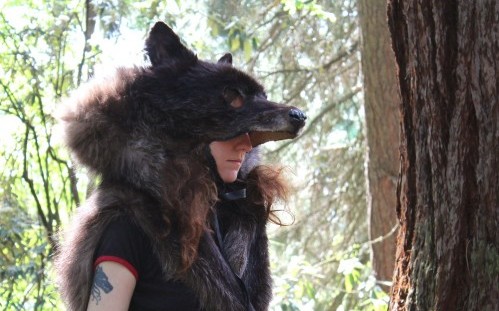Pagan voices is a new spotlight on recent quotations from figures within the Pagan community. These voices may appear in the burgeoning Pagan media, or from a mainstream outlet, but all showcase our wisdom, thought processes, and evolution in the public eye. Is there a Pagan voice you’d like to see highlighted? Drop me a line with a link to the story, post, or audio.
“The process of cultivating real integrity is sometimes messy and sometimes ugly. Fostering community is not about learning to be a good actor or an appreciative audience, but about learning how to take the messiness and clumsiness and ugliness in stride and discover the beauty within all the chaos. It’s about learning to recognize the grace of intimacy and the power of integrity, when inner experience and outer appearance are brought into more authentic communication with each other.” – Alison Leigh Lilly, from her recent blog post: “Why Pagans Don’t Respect Their Elders: Sincerity, Competence and Integrity.”
“This year, I’m mindful not only of the “founding fathers” of the United States, but also of the founding mothers and all the women who could be reckoned among them: Martha Washington, Abigail Adams, Dolly Madison, and–though some might think it is controversial to suggest this, I don’t think she should be forgotten–Sally Hemmings, as well as any number of other women whose names we know and whose stories we remember as well as those we’ll never know. Diva Matidia, Diva Plotina, and Diva Sabina were all as important to Hadrian and to his principate as Trajan–if not even more so, in certain respects–and it thus seems amiss to me, with the coincidence of July 4th as the birth of Matidia and the “birth” of the U.S. to forget that there were mothers as equally as there were fathers as part of that birth.” – P. Sufenas Virius Lupus, from “Dies Natalis Divae Matidiae,” at the Aedicula Antinoi blog.
“From the perspective of this mortal man, I see grace as a process of surrendering to all which one does not have control over. As powerful a mage as you may become through your religious work, I don’t believe one can control everything. Your will, after all, is not the only will. I do not see one needing to connect grace to a particular theology, or to a single deity, in order for it to have relevance. An atheist, for example, might experience grace by remembering and recognizing that they fit within a greater, more complicated, more interconnected ecosystem. Grace occurs in conjunction with that kind of humility.” – Teo Bishop, “Since When Were Will and Grace Pagan?”
“I am becoming more like Frigga than I would, at one time, ever have cared to admit. Among other things, Frigga is a goddess of fertility (which can be interpreted both in terms of actual childbearing and as creative power), and although I am past my childbearing years (thankfully!) like Her I am a maker, a crafter, an artisan. I am also a Heathen entrepreneur who offers my creations for sale to the public, spends a good deal of time learning how to market them, and on top of all of this holds down (for the time being, anyway) a regular day job. In my quest to understand Frigga the closest model I have found is that of the early medieval European queens. Rather than meek, retiring adornments for their husbands, these queens were working women, adept at running a royal household and usually a whole cottage industry (consisting of spinning, weaving and stitching) besides. Like Frigga, I am a busy woman, sometimes too busy. Yet I certainly can find time to write about Her here, and the ways in which She has helped to transform my life, both in terms of the textile arts that I love and in my understanding not only of myself but of fate (or, as we northern pagans call it, Wyrd).” – Beth Lynch, “Confessions of a Pagan Handspinner,” from Witches & Pagans Magazine.
“I have always appreciated the efforts of Pagan Culture (encountered by me, at least, since the early ’90s) to accommodate itself to its Gay (LGBTQ) members; no-where has this been more evident than in the efforts of PantheaCon and PSG to bridge the gap between Hetero-Normative Pagans, and LGBTQ Pagans (Queer Pagans, to borrow an NYC term from the early ’90s); which efforts have been scrupulously reported here, and elsewhere. It may be that we are “in” this together, as both Gays, Pagans, Gay Pagans, and Pagans Supportive of Both Gay and Pagan Rights- if the Fundie Evangelicals mean to call down “Homosexuality” as “Pagan,” and as “Pagan” leading to “Homosexual.” In which case, the willingness of Pagans to stand As One by their Gay Co-Religionists, is all the more remarkable.” – Zan Fraser, a contributor to The Juggler, from a comment posted to The Wild Hunt.
“Our vision is blocked by the overwhelming problems of the now. This calls for a more active use of our imaginations. How many of us temporarily escape the problems of our lives through a bit of daydreaming? This is a good practice, provided it isn’t done to excess. Giving our brains a break allows us to come back to our problems more fully and well-rested. And we can do the same with environmental problems by taking time off to just focus on what a green future could look like.” – Lupa, “The Power of Positive Greening,” from the No Unsacred Place blog.
That’s all I have for now, have a great day!
























